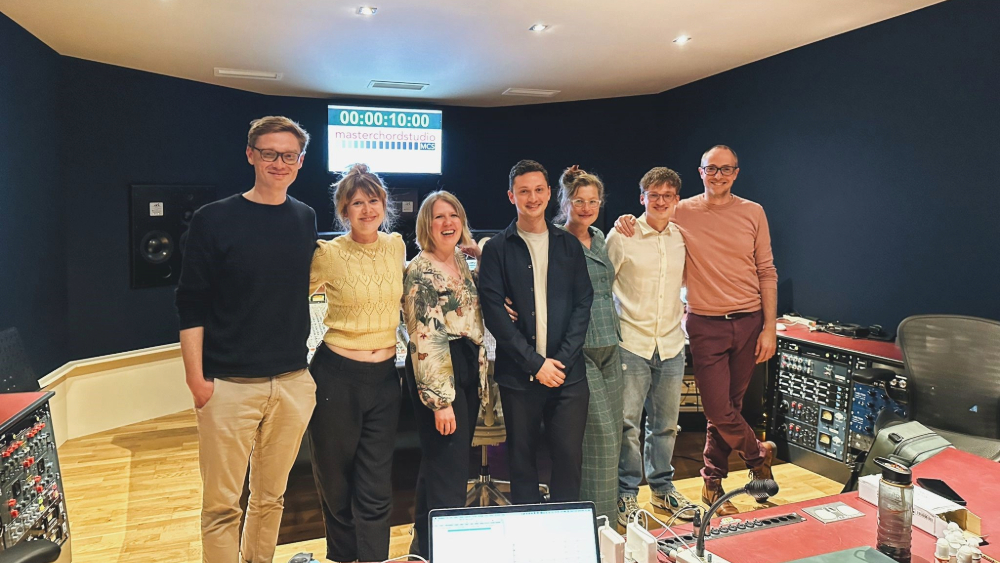It’s impossible to imagine Bristol without its distinctive musical backdrop. Whether it’s the record stores of St Nicholas Market spinning rare reggae cuts, the latest punk sensation rumbling through the hull of the city’s waterborne venue Thekla, or The Wurzels’ anthem Drink Up Thy Zider blaring through Ashton Gate’s stadium PA every other Saturday, there’s no denying Bristol’s unique relationship with music culture.
The city’s rich musical heritage speaks for itself. From being home to the storied trip hop explosion of the late ‘80s and early ‘90s that was spearheaded by the likes of Massive Attack, Tricky and Portishead through to drum’n’bass heavyweights like Roni Size, Bristol has been home to innovators of all kinds. Take the celebrated Sarah Records, which, despite folding in 1995, ranked at number two in NME’s Greatest Indie Labels Of All Time list in 2015 due to its belief ‘that a label is more than a catalogue of disparate releases’.
You don’t have to look far to find a wealth of more recent success stories, either. Guitar-wielding giants IDLES are arguably one of the world’s biggest bands right now, taking their acclaimed fifth album TANGK around the globe after headlining Glastonbury’s Other Stage in June. Then there’s Timedance, the label anchored in Bristol’s soundsystem and rave culture heritage who are actively shaping the future of UK electronic music.
Owain Jones, Assistant Promoter at Bristol-based Crosstown Concerts, attributes the city’s continued success to its infrastructure of music venues. ‘I think Bristol is unique in just how many incredible club venues we’ve got, ranging from spaces like The Fleece, The Louisiana and Thekla through to newer venues in Rough Trade and Strange Brew,’ he tells M. ‘It feels like a destination for touring artists as well: those on the road feel like they have to stop off here as a priority.’
Having witnessed the rise of IDLES first-hand, Owain recalls how the five-piece played at just about every independent venue within the city before eventually capturing the attention of Steve Lamacq during a show at Thekla.
‘Ultimately, bands like IDLES won’t exist without these venues,’ he adds. ‘As a national promoter we rely on venues of that size, which will ultimately open doors for bands to perform. It really cultivates that scene and culture within the city that then births all of these exciting bands.’
'Bristol feels like a destination for touring artists.' - Owain Jones
As well as traditional performance spaces, Bristol has a proud tradition of utilising unorthodox spaces for live music events. Local label Howling Owl Records memorably hosted a raucous punk boat party — featuring Fugazi-soundtracked mosh pits as they floated through the harbourside — while local late-night promoters regularly utilise art space The Island, located within the converted basement of the Old Bridewell Police Station in Bristol city centre.
Monika Taneska, founder of the not-for-profit club night Public Affair and a presenter on the local community radio station Noods, thinks that the experimental nature of Bristol’s promoters is what makes the electronic scene here such an exciting playground.
‘You end up trusting the reputation of the promoter rather than the artists on the line-up,’ she explains. ‘When I first moved to the city eight years ago, it was about knowing which promoters had their fingers on the pulse. It was a real learning curve for me in terms of finding the right places to be. When a crowd trusts a promoter, it draws a really excitable audience and creates this really special atmosphere.’
Monika says her residency on Noods is an extension of Bristol’s raw and untethered excitement for new music.
‘I love that my show and the entire station has a real community feel when it comes to championing new sounds,’ she adds. ‘Noods tries to shine a spotlight on genres that aren’t necessarily big or commercial. Bristol is a very multicultural city with all these exciting sounds and voices coming through, and I think the station is a great reflection of that. Noods also do so much community work when it comes to creating pathways for women and non-binary individuals to get into radio and broadcasting.’
Monika cites a similar drive by Saffron Records — a label striving to advance gender equality in the sector by creating safe spaces for learning, community and progression — as a catalyst for her own career development: ‘I owe so much to Saffron and the work they do. It was a massive confidence booster when it came to learning how to mix and putting on nights across the city.’
'Bristol is a very multicultural city with all these exciting sounds and voices coming through.' - Monika Taneska
Other music initiatives within the city are creating pathways in places you might not expect. The music-based rehabilitation charity Changing Tunes recently launched Red Tangent Records, a label committed to supporting individuals who’ve had interactions with the criminal justice system. Devoted to helping these individuals unlock their musical potential, Red Tangent provides financial backing, industry guidance and emotional support to empower artists in building sustainable careers.
David Lindsay, project lead at Changing Tunes, stresses to M just how vital these types of initiatives are: ‘We’ve worked with so many talented artists while they were incarcerated. Red Tangent is offering them a chance to move beyond their criminal labels and be seen for the true artists they are. The future of music is happening now and here.’
Indeed, the Bristol music scene is already populated with the trailblazers of tomorrow. From nu-jazz innovators Ishmael Ensemble, who draw some of their inspiration from the ‘Bristol Sound’ era that birthed trip hop, to the likes of vocalist and producer Grove, who is ripping up conventions with their own revolutionary soundsystem-indebted punk approach. Pete Cunningham, the driving force behind Ishmael Ensemble, says the local scene is in a healthy place.
‘There’s no room for big egos on the Bristol scene because everyone knows each other,’ he tells M. ‘Everyone helps each other out and is approachable: I’ve found that since I first moved to the city over 10 years ago and started going to the early dubstep nights that Pinch would put on. You’d just be standing in this room with the likes of Peverelist, Shanti Celeste, Hodge — all these huge artists, and you could ask them anything. It’s about having this supportive network in the flesh, and you see places like The Gallimaufry or Strange Brew continuing that.'
The fact that several of Bristol's most influential music figures still reside and work in the city, Pete adds, is a huge endorsement. 'Whether it’s the Massive Attack guys or Portishead's Geoff Barrow, with his work at Invada Records, and Adrian Utley, they’re all still working in the city and that’s really inspiring. It makes the dream feel more tangible, [reiterating that] you don’t need to move to London to succeed because they’re all still here.’
Monika agrees that there’s something special going on in Bristol. ‘We have some incredible record labels in the city focusing on emerging talent, which is really inspiring for songwriters. It’s pushing them to challenge themselves and push the boundaries with the sounds that they’re creating.
‘Ultimately, it’s about writers feeling comfortable enough to make music for themselves and not for others. That environment is what cultivates the forward-thinking artists who are writing the next chapter.’
Don't miss out on Members' Day Bristol on 17 October at M Shed, Bristol - get your ticket here.





